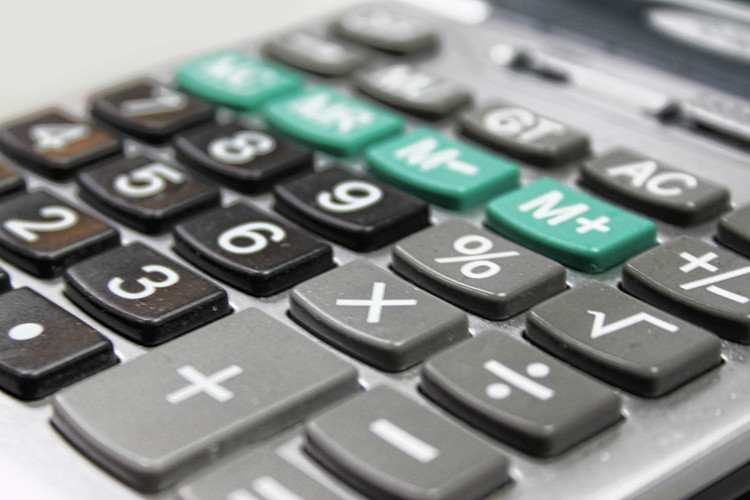5 Smart Tips To Save More Money When Buying A Used Car
 (Photo Credit: Pexels)
(Photo Credit: Pexels)
Money makes the world go round as some people would say it but not everyone has that much money to obtain the latest cars with the ever evolving technology.
Hence, the number of people leaning towards buying used cars is becoming a trend in the society as it is considered a lot more cheaper. Considering rebates, comparing prices from different dealers and choosing the right car for you could save you a lot of money. Here are five smart tips that will reveal the trick on how to buy a used car on a small budget.
1. Consider the Rebates into the Price of the Car
 (Photo Credit: Pixabay)
(Photo Credit: Pixabay)
PARF and COE rebates are two things to take into consideration when you plan to buy a used car. PARF, also known as Prevailing Additional Registration Fee, is the rebate you will get back when you sell your less than 10 year old car. Just like COE, it will depreciate as you use the car but it has a minimum point where it will not depreciate any lower than the specified point. A nine to 10 year old car will give you 50% of the ARF that you paid in the beginning when you bought the car. The downside about PARF is that it will not be applicable to COE renewed cars.
COE renewed cars will not possess the PARF rebate, it will only possess the COE rebate where it will depreciate everyday and it has no minimum point. Hence, it will depreciate till it goes to zero. For example, if you bought a new car and you used it till the last day before the COE expires, your COE rebate will be zero.
These are the two rebates that you can get back from selling your car. But the eligibility of the rebates are dependant on the age of the car. Hence buying a COE renewed car may be cheaper but you will not get the PARF rebate at the end of your driving period, or you could even get back nothing if you use the car till the final day of the renewal period. On the other hand, buying a car with its COE not renewed allows you to get both COE and PARF rebate at the end of the 10th year.
Thus, it really depends on how much you're willing to spend at the point of purchase. You may not have a big rebate at the end of the COE cars but it sure will cost you lesser than buying a PARF rebate. It is advised for you to remove all the rebate value in the price of the car to view the actual price you should compare with.
Click here if you are still unsure on how the COE and PARF works and feel free to ask any questions!
2. Making the Right Comparison
 (Photo Credit: Public Domain Pictures)
(Photo Credit: Public Domain Pictures)
If you already have a specific car in mind, chances are you might just grab the car from the first dealer you find. But, what if other dealers are selling the same exact car at a much lower price? It is advisable that you do not make rash decisions when buying something, especially a car.
By making the right comparison means that you always ensure that you do your proper research from the different sources that sells the same car. Compare the prices and the car conditions. From there then you could narrow down the possible dealers that you could buy the car from.
Keep in mind that price itself is not sufficient for you to make a decision. One example would be, the PARF and COE rebates as mention above, plays a part too to determine the real value that you need to pay for the car. The best thing for you to do is to stay calm and reserve some time to sit down and slowly pick the best deal that you feel is suitable for you.
Remember, rash decisions only bring regrets! Getting a car which is cheaper than others might not mean you have saved a lot of money. Sometimes spending a little more money to get it back at the end of the usage period is more cost-efficient and is the real deal!
3. Focus on What You Need from the Car

It is a common understanding that the more luxurious the car is, the higher the price will be. Hence this is the reason why you need to set an objective for having a car. Let's say you need a car just for yourself to travel, then you would not need a big car like a Range Rover, unless of course if you are wealthy and not sure what to do with all your money.
Honestly, if the main purpose of you having a car is solely for travel, you probably may want to look at a car like the Honda Jazz which could still bring yourself around the island at a reasonable. But if you have a big family, a small hatchback like the Jazz cannot accommodate your family's needs and space. In that case, an MPV would be the ideal type of car for you if you have a family of more than four members.
Don't forget, branding plays a part too. If you want to save as much money as possible then Japanese/Korean cars would be the ideal type for you compared to Continental cars. Size of the car will also affect the price.
It will be a little more pricier when a Japanese-make MPV is compared to a Japanese-make hatchback. Hence, choose your car wisely and eliminate all the extra features that you might not even need in a car and you will soon realise you're becoming more budget-savvy in terms of the products you purchase in the future.
4. Do a Thorough Check on the Car\

You may find that cars with their COE expiring in one or two years tend to be cheaper. But bear in mind that these cars are eight to nine years old. Their mechanical structure and engines might not work as perfectly as how they did eight to nine years ago. This increases the possibility of the cars breaking down or malfunctioning. It may result in you not spending a lot of money in buying the car, but spending more money for maintenance and repairs instead.
One tip that we can give you is to inspect the car's engine, mechanical components and electronics physically before buying the car. Ensure that they are all in good condition. It may not be in perfect condition but good condition cars are a better bet than having a car with poor engine. In this kind of situation, your mechanic will be your best friend that you could trust. So try to source for the best mechanic in town and send the car for a thorough inspection to get the green light.
If you do find that the car have certain issues not mentioned by the dealer at the point of purchase, head back down to the dealers to address the issues and settle it in a peaceful manner. In an event that the dealers are defensive, there is something called the lemon law for you to act as a lawyer for yourself. Lemon law basically protects consumers against defective goods, including used cars, that requires repair work or replacement of parts.
If don't want to go through all that trouble, you could ask for a car evaluation before the car is purchased. If a seller or dealer refuses, they might be trying to hide certain defects from you.
To book an appointment for a car evaluation, simply click on the following link. It's a small price to pay for a peace of mind!
5. Don't Get a Car with a High Fuel Consumption Level
(Photo Credit: Feel great Picture)
Buying a cheap car may be a plus point for you but if the fuel consumption level is high, you might be burning your pocket topping up the petrol to run your car. A litre of petrol will cost you around $2.43 (98 Quality) on average in Singapore. This may lead to an increase in the cost to run the car, and it would not be of any advantage to you.
Hence, before buying a car, research on the fuel consumption of the specific car. A car that is considered averagely fuel-efficient by LTA, can travel approximately 10km/litre of petrol. If it is over the average, you might find yourself stopping at almost every petrol station along your route! Cars with lower fuel consumption could save you a fortune in the near future.
Claim your free car valuation today!
Read more: 4 Ways to Sell Your Car - Traditional vs Unconventional
Download the new Motorist app now. Designed by drivers for drivers, this all-in-one app lets you receive the latest traffic updates, gives you access to live traffic cameras, and helps you manage LTA and vehicle matters.

